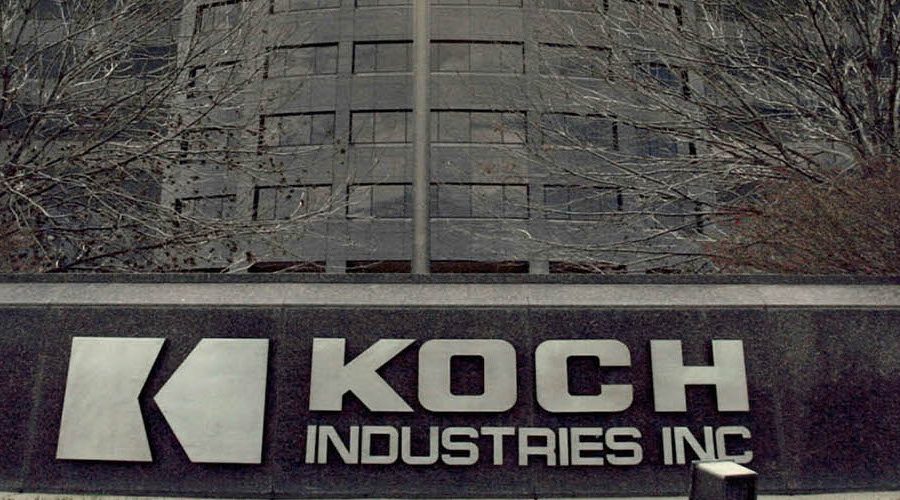Newly released figures show that Koch Industries has spent almost 20 percent more on federal lobbying expenses so far this year than it had at the same time last year. With the U.S. House in Democratic hands, Koch, like other fossil fuel companies, is forced to play defense on energy issues, along with pushing back against Trump trade policies.
Koch spent $9.1 million on lobbying for the first three quarters of 2019, both for the company’s own lobbyists and outside lobbying firms. At the same point last year, the company had spent $7.7 million.
The company’s lobbying reports don’t break down expenses by issue or legislation, but show that Koch Industries has lobbied on at least 46 bills, nominations to the Environmental Protection Agency, and U.S. trade negotiations.
Koch Industries has been actively opposing a broad range of environmental bills, including the Safer Pipelines Act (H.R. 3432) and the Climate Action Now Act (H.R. 9), which seeks to stop the U.S. from withdrawing from the Paris climate accord.
President Trump announced his intention to take the U.S. out of the Paris Agreement in 2017 and filed formal papers this week to start the one-year process.
H.R. 9 passed the House in May, so in the third quarter Koch has worked to prevent a vote in the Senate.
“This bill would bring the U.S. government back into the fold with every other nation on Earth, as well as more than 3,600 leaders from America’s cities, states, tribes, businesses, colleges, and universities, who have banded together to deliver on the goals of the Paris Agreement,” said Lou Leonard, senior vice president for climate and energy at the World Wildlife Fund.
Koch also spent money trying to pass H.R. 431, which would repeal Corporate Average Fuel Economy or CAFE standards. The bill, introduced by Rep. Roger Williams (R-Texas), is stalled in the House due to opposition from Democratic leadership. Williams has received $16,000 since 2014 from KochPAC, the company’s political action committee, and close to $1 million from the oil and gas industry overall during his career in Congress, according to the Center for Responsive Politics.
Koch is also fighting H.R. 330, the Climate Solutions Act of 2019, introduced by Rep. Ted Lieu (D-CA). The bill would require the Department of Energy to issue regulations requiring that 100 percent of electricity sold in the U.S. be generated by renewable sources by 2035, and set energy savings targets for utilities and natural gas suppliers.
Like almost all Democrats, Lieu has received no money from KochPAC.
H.R. 763, which would impose a tax on the carbon content of fuels, has also been vigorously opposed by Koch. Less ambitious than the Green New Deal, which was introduced at the start of this year’s Congress, the bill awaits committee action.
In addition, Koch Industries has been actively lobbying against H.R. 1, the House Democrats’ sweeping anti-corruption and election reform package known as the For the People Act of 2019. Koch and its influence network, including Americans for Prosperity (AFP) and the State Policy Network (SPN) strongly oppose the bill’s donor disclosure provisions. Both AFP and SPN have also reported lobbying against the bill.
AFP has spent another $465,000 on federal lobbying so far this year, as compared to $300,000 for all of 2018. AFP nationally has been pushing, among other legislation, S. 287, the Bicameral Congressional Trade Authority Act of 2019.
The bill would limit the President’s authority to impose trade tariffs and is in response to Trump levying tariffs on Chinese goods. As a libertarian, Charles Koch is a free trader, but as the Center for Media and Democracy reported last year, Koch Industries also has a $1 billion investment in China.
AFP’s affiliated super PAC, AFP Action, which raised the bulk of its money from Koch Industries and Koch’s Freedom Partners, is sitting on a $10.6 million war chest that it will likely spend in the 2020 election cycle.



Leave a Reply